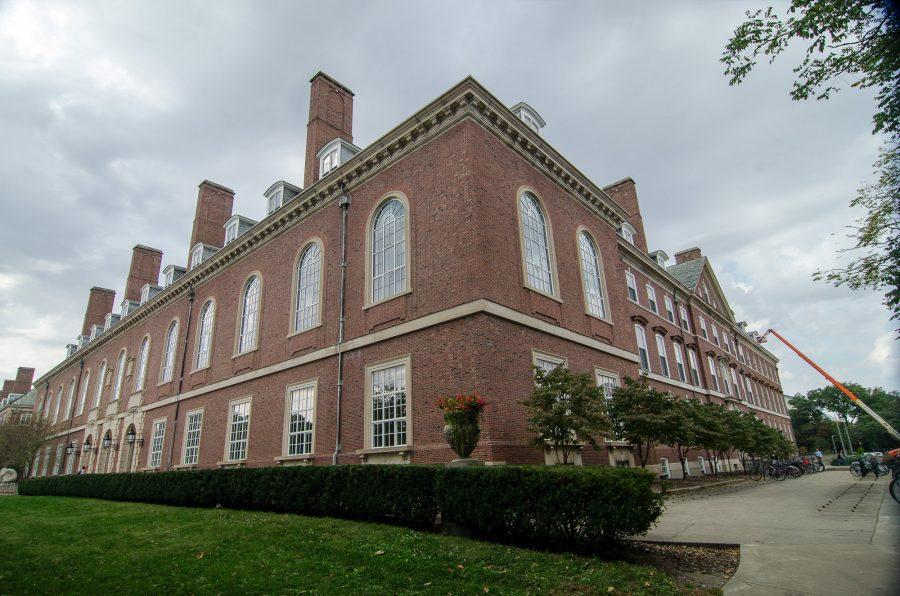Daylight saving time is no longer useful
The end of the day approaches as an overcast sky comes over the Main Library. Daylight savings time ended this past Sunday.
November 9, 2016
To me, daylight saving time symbolizes the start of the holiday season, walking through a pile of dismantled leaves on the sidewalk and of course completely shifting my sleep schedule.
It’s the time of the year again when we’re forced to change our clocks to an hour behind, and the concept serves almost no purpose at all in our modern society. There’s no real effort in changing the clock an hour forward or behind, but why are we still doing it if it’s not even a universal practice? Some states and countries have tried, but it’s just failed to catch on with the general population.
Setting aside the many other issues from the 2016 presidential election, Hillary Clinton has actually stated at a campaign event in Las Vegas that she would consider getting rid of daylight saving time or making it permanent.
“I will certainly consider (ending daylight saving time),” she told Patrick Villa, the math professor at College of Southern Nevada who asked about her opinion on the issue. “I honestly think you may be the first person to do this in my 20 years of work who’s ever asked me that. I mean, people have talked about it with regard to energy savings and things like that … so let me take that back and think about it.”
The primary goal of daylight saving was to conserve energy by cutting down on electricity to light up homes; however, fuel consumption and overall residential energy usage (such as air conditioning) increases during daylight saving time, which opposes its primary goal.
Get The Daily Illini in your inbox!
Time zones also play a major role in which countries participate in daylight saving time.
We’re all connected via the Internet: Similar to how a new system of telling time was accommodated during initial stages of globalization along with quicker means of transportation, we should consider a more universal time zone for our day-to-day lives.
While I’m all in for getting rid of time zones, it is the same argument of whether or not the U.S. should switch over to the metric system — there’s simply too much commitment and change involved which would make traveling and adapting difficult.
Unlike the drastic changing of time zones completely to coordinated universal time getting rid of daylight saving time would be a lot easier because it only occurs twice a year.
Getting rid of daylight saving time would be a great way for us to avoid unnecessarily changing our sleep schedules, without risking any negative consequences.
K.J. is a freshman in DGS.







